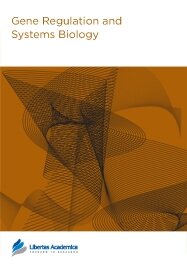

Publication Date: 09 Jun 2010
Type: Original Research
Journal: Gene Regulation and Systems Biology
Citation: Gene Regulation and Systems Biology 2010:4 53-60
doi: 10.4137/GRSB.S4880

The mechanism of FGF23 action in calcium/phosphorus metabolism of patients with chronic kidney disease (CKD) was studied using a mathematical model and clinical data in a public domain. We have previously built a physiological model that describes interactions of PTH, calcitriol, and FGF23 in mineral metabolism encompassing organs such as bone, intestine, kidney, and parathyroid glands. Since an elevated FGF23 level in serum is a characteristic symptom of CKD patients, we evaluate herein potential metabolic alterations in response to administration of a neutralizing antibody against FGF23. Using the parameters identified from available clinical data, we observed that a transient decrease in the FGF23 level elevated the serum concentrations of PTH, calcitriol, and phosphorus. The model also predicted that the administration reduced a urinary output of phosphorous. This model-based prediction indicated that the therapeutic reduction of FGF23 by the neutralizing antibody did not reduce phosphorus burden of CKD patients and decreased the urinary phosphorous excretion. Thus, the high FGF23 level in CKD patients was predicted to be a failure of FGF23-mediated phosphorous excretion. The results herein indicate that it is necessary to understand the mechanism in CKD in which the level of FGF23 is elevated without effectively regulating phosphorus.
PDF (611.83 KB PDF FORMAT)
RIS citation (ENDNOTE, REFERENCE MANAGER, PROCITE, REFWORKS)
BibTex citation (BIBDESK, LATEX)
XML
PMC HTML

Publishing in Gene Regulation and Systems Biology was a very positive experience. I was impressed by the fast and uncomplicated submission process as well as the clear and professional peer review process which helped to improve the manuscript. The Libertas Academica team was very patient and helpful. I would definitely recommend the journal to other colleagues in the field!
Facebook Google+ Twitter
Pinterest Tumblr YouTube